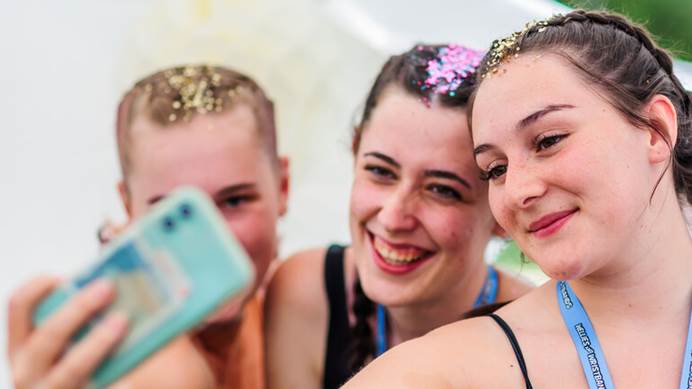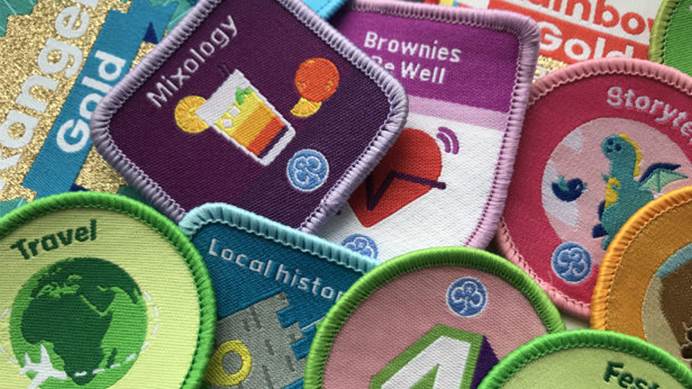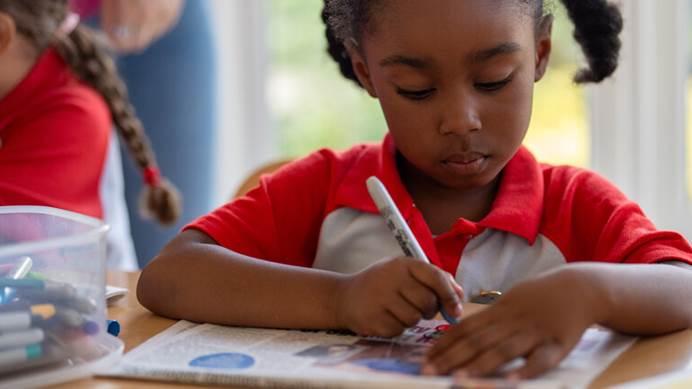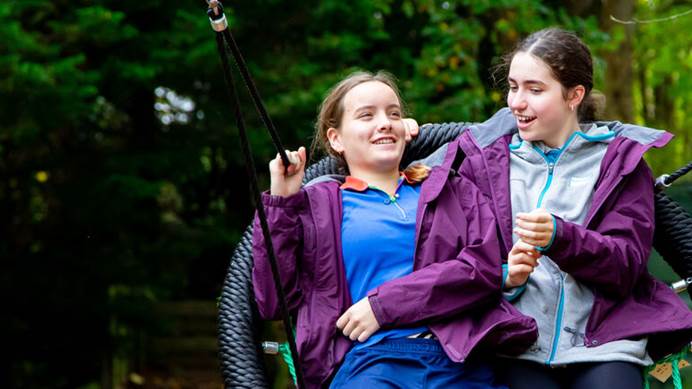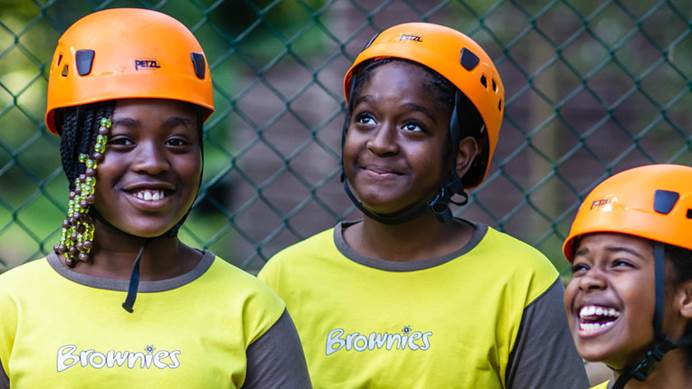What to do in an emergency
What to do, who to contact and how to deal with queries in case of an emergency
This guidance is part of our health, safety and welfare procedure.
What to do in the case of an accident or incident
What to do in accident or incident
If there's been an accident or incident, these are the first things you need to do:
- Keep calm. The most important thing is that you don't panic and you think clearly.
- Make sure, as far as you can, that the girls and young women you're taking care of, and the other volunteers with you, are safe.
- Call the emergency services if appropriate.
Responding to serious incidents
If an incident occurs at a Girlguiding property, event, activity, or meeting – whether in the UK or abroad - that results in a serious incident, death or life-changing injury, it must be reported to the safety team at Girlguiding HQ within 1 hour.
A serious incident is any event which requires support from emergency services. This includes a missing child, fire or significant property damage.
Girlguiding provides a 24-hour support line to assist you throughout the process. You are not alone— guidance is available at every step.
If the incident happens during a joint activity with another organisation, you must follow this procedure, while the other organisation follows theirs.
It's essential to follow this procedure carefully. Doing so ensures the safety and wellbeing of everyone involved and helps Girlguiding respond effectively to any incidents or emergencies.
In the event of a serious accident or death, Girlguiding must be contacted within 1 hour via the emergency safety line on 0207 592 1828.
Key reminders
- Keep calm: your role is to ensure the safety of everyone involved and follow the guidance provided.
- Communicate: contact the necessary people promptly and share information carefully.
- Dealing with media: refer all press inquiries to your local area public relations adviser or the Girlguiding HQ press team.
Step 1: the first hour
It‘s the responsibility of the leader in charge to ensure the following actions have been carried out. They must be part of any risk assessment.
1. Immediate response
- Ensure the situation is safe. Take immediate steps to manage the incident, for example by administering first aid, or moving young members and volunteers to a safe location.
- Call emergency services for urgent medical assistance.
2. Notify the right people in an incident
- If the incident happens during a Girlguiding activity or event away from your local guiding area, notify the home contact.
- For incidents within the local guiding area, the commissioner or unit leader must contact parents, carers, or next of kin directly.
- Always contact those most directly impacted (such as the family of the person affected) first.
3. Notify the Girlguiding emergency line
- The home contact, commissioner, or unit leader must report the incident to the Girlguiding emergency line as soon as possible.
- The emergency line will provide expert guidance on the next steps.
The HQ teams will:
- Stay in contact with volunteers on-site.
- Work with local leaders, commissioners, and country or region teams to provide support at a local level.
- Set up a case management group or crisis management group, which will include a country or region contact.
- Carry out an internal investigation.
- Engage legal support.
- Report to RIDDOR – Reporting of Injuries, Diseases and Dangerous Occurrences Regulations.
If there is an accident or emergency that results in a volunteer or young member going to hospital:
- Always inform the injured individual’s parent, carer, or next of kin first.
- The leader in charge will contact you with a summary of the situation, and you must agree on the next steps together.
- Once they’ve been notified, you may also need to contact other parents or carers, especially if the trip needs to end early.
- Where there’s a fatality, the emergency services (police) would usually be responsible for informing parents, carer, or next of kin in person.
- Don’t share any information about a fatality with other parents or carers until the police have made official contact with the family.
How to report an accident, incident or near miss
You may need to report the accident or incident to the HQ insurance team. This flowchart will help you to understand if the accident or incident is reportable.
The following incidents must be reported to the HQ insurance team. Those resulting in:
- Significant injury, discomfort or illness following an accident or incident.
- Damage to property.
- Incidents that involve acts of aggression or violence towards a member of staff or volunteer, including verbal abuse. If you have a safeguarding concern, follow our safeguarding policy and procedure and report to the HQ safeguarding team.
- Any potential insurance claims.
- Any significant near misses (see the flowchart for more information).
Forms
Notification of accident or incident form
Use this form to report an accident, incident or near miss to the HQ insurance team.
- Notification of accident or incident form (PDF)
- Notification of accident or incident form (Word, 239 KB)
Accident or incident witness statement form
Use this form to collect statements from anyone who witnessed an accident or incident involving Girlguiding members and send along with the notification form.
- Accident or incident witness statement form (PDF)
- Accident or incident witness statement form (Word, 233 KB)
Injured person form
Use this form if more than one person was injured as a result of an accident or incident, completing it for each injured person. Send along with the notification form.
The notification of accident or incident form and any other forms or supporting documents should be sent to the insurance team by emailing [email protected] or by posting to Girlguiding HQ. Keep a copy of the forms until receipt is acknowledged by HQ and then they can be safely destroyed.
You should also let your commissioner know about the accident or incident.
We’ve updated our emergency file page with the latest versions of these forms. We’ll continue to accept older versions of the notification of accident or incident form until January 2025, but it’s a good idea to update your emergency file with this latest version.
If contacted by the press
Don't make comments to them straightaway. Instead, take their name and contact details, ask for a deadline and tell them that someone will get back to them. You can then pass this on to Girlguiding's PR team.
What happens after reporting an accident or incident
You'll receive a notification from GO to confirm that the insurance team has received your notification of accident or incident form. They’ll advise you about the next steps to take, for example:
- Follow up with the injured person (or their next of kin) to check how they're doing and inform the insurance department of any updates on their condition.
- Review your risk assessment and update it if there are any changes that you could make to prevent this incident from occurring again. It's important that you always undertake a risk assessment before starting any guiding activities.
- Take any follow-up actions identified when reviewing your risk assessment, for example repairing or replacing faulty equipment, notifying the venue etc.
- Complete an incident review form (Word, 233 KB) to help understand what caused the incident, what lessons can be learned, and what actions can be taken to help avoid this in future. The insurance team might ask you to complete this form, but it can also be a helpful tool that you can choose to complete if you think it would be helpful to learn from the accident or incident.
The insurance department will also send an acknowledgment letter to the injured person (or their next of kin if they're under 18). If the injured person needed further medical treatment, they're entitled to apply to the members’ benefit scheme, a discretional fund members can claim against, to recover some of the expenses they might have incurred relating to an accident or incident during guiding activities. The insurance department will send them details of how to apply to this scheme.
Following an incident, you must not admit liability at any time. Before taking any major remedial action following an incident, such as doing repair work to Girlguiding properties, you need to get agreement from Girlguiding's insurance department.
You should send any correspondence you receive about an incident to the insurance department – especially legal letters. Girlguiding has insurance to cover you against claims for accidents but you need to share the legal letter with the insurance department within 24 hours so that we can comply with the law. You don't need to reply to the correspondence yourself and no offer of money should be made at any time.
The insurance team will be in touch with you about what's happening once they've received and acknowledged it. Where relevant, the HQ teams will report to RIDDOR – Reporting of Injuries, Diseases and Dangerous Occurrences Regulations. They may be in touch if they need further information.
Girlguiding takes safety very seriously and the insurance department monitors all accidents and incidents recorded during guiding activities. This helps us to make informed decisions about future training and support.
Plan safe activities
Some accidents and incidents can be avoided by careful planning. Find more information and support so you're as prepared as possible.
